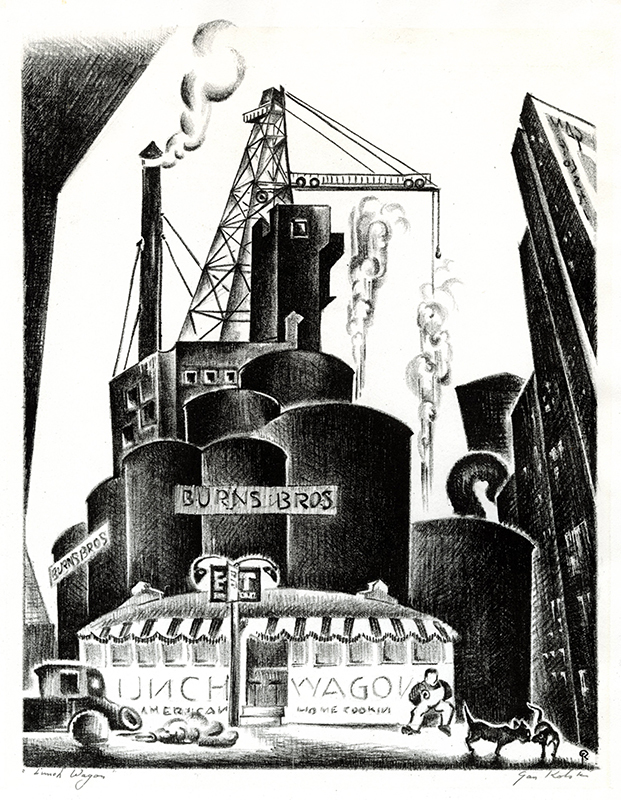
19th, 20th & 21st Century Fine Prints
707-546-7352 · fax 707-546-7924 · web: www.annexgalleries.com · email: artannex@aol.com
Lunch Wagon by Gan Zigormas Kolski

Lunch Wagon
Gan Zigormas Kolski
Lunch Wagon
Gan Zigormas Kolski
1899 - 1932 (biography)A rare lithograph by Polish-born American printmaker Gan Z. Kolski. Kolski's composition features a small, lightly drawn diner called the "Lunch Wagon" which serves "American Home Cooking". A worker is seated outside and to the right are two cats, checking each other out. This slice of Americana is overwhelmed in the background by an imposing group of industrial structures, silos, a crane, and smoke-belching chimneys, surrounded on both sides by skyscrapers. This conglomeration is owned by "Burns Brothers", advertized by two large signs.
Kolski's warning is obvious: a warning about the industrial intrusion on society and the environment at the cost of a loss of community. The Burns Brothers had coal factories throughout New York, this complex was located at 38th St. and 1st Avenue in Manhattan.
The website of the Ackland Art Museum, University of North Carolina, Chapel Hill comments: “The Polish-born artist Gan Kolski (1899-1932) lived in New York City on Horatio Street, near the burgeoning artistic neighborhood Greenwich Village. Kolski produced illustrations for the radical left magazine New Masses and participated in exhibitions by the John Reed Club, an organization for Marxist artists and intellectuals…. Although Kolski did not become as well-known as some of his contemporaries, in part because his career was cut short by suicide at the age of only 33, his prints are an excellent example of the social realist aesthetic of the era.”
In a review in April 2017, in the New York Times of Jules Stewart’s book 'Gotham Rising: New York in the 1930s' Gan Kolski is quoted as writing, according to the book, before leaping to his death from the George Washington Bridge over the Hudson River, "If you cannot hear the cry of starving millions, listen to the dead, brothers. Your economic system is dead."
